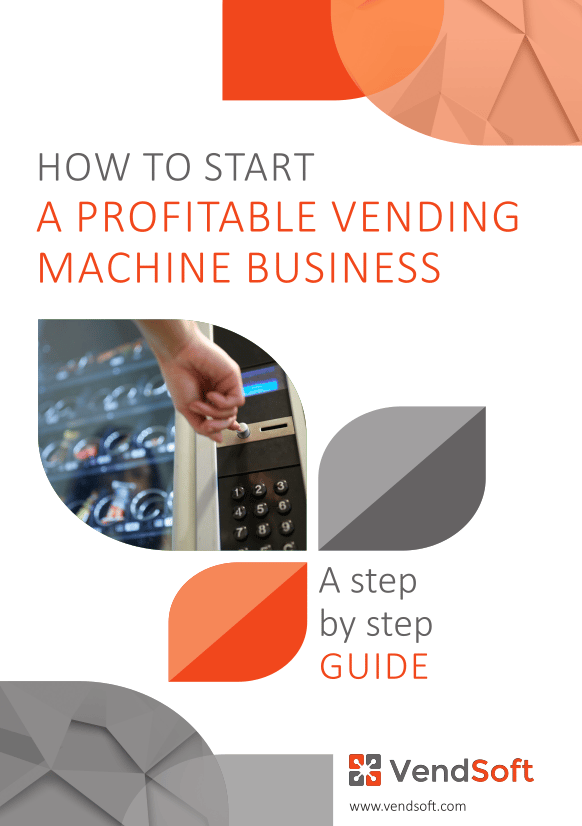Thinking of buying a vending machine business? This guide reveals how to investigate sellers, check machines, review financials, and avoid hidden risks. Learn key steps for a smart purchase—and see how VendSoft can help manage your new business efficiently.
Guide to the Successful Purchase of an Existing Vending Machine Business

Should You Buy an Existing Vending Machine Business? Your Investigator’s Checklist
You’re here because you’re thinking bigger. Whether you already own a few vending machines—or you’re ready to jump into the business for the first time—you’re wondering:
“Should I buy an existing vending machine business?”
It’s a smart question. Buying an established business can mean cash flow from day one, locations already in place, and a head start most new operators can only dream of.
But smart business owners know one thing: money follows the truth. Before you sign any deal, it’s your job to dig beneath the surface and make sure the business is as solid as it looks. The good news? When everything checks out, you’ll not only avoid nasty surprises—you’ll step into a business that’s already making money and ready to grow.
Here’s how to investigate—and how to spot the signs that you’re looking at a great opportunity.
Clue #1: Understand Why the Seller Wants Out
One of the smartest questions you can ask when considering buying an existing vending machine business is simple: “Why is the current owner selling?”
There are plenty of legitimate reasons an owner might want out. They might be retiring, moving to a new city, changing careers, or simply ready for a new challenge. Sometimes, they need cash for personal reasons—like a child’s college tuition, medical expenses, or even that dream sports car.
But sometimes, a sale hides problems beneath the surface. A seller could be looking to offload a business that’s struggling with declining sales, bad location contracts, or machines that break down more often than they work.
So don’t just accept the first answer you hear. Dig deeper. Ask follow-up questions. Look for clues in financial records, machine conditions, and conversations with location managers.
When you hear a seller talk about moving on for personal reasons, and the business numbers still look solid, that’s often a sign you’re looking at a genuine opportunity—not a ticking time bomb.
Clue #2: Follow the Money Trail
Sellers love to show spreadsheets filled with impressive numbers. But numbers only matter if they’re real.
Ask questions like:
- Do sales reports match actual cash collected from machines?
- Are there seasonal dips the seller hasn’t mentioned?
- Do bank deposits align with claimed cash flow?
- Has revenue dropped recently, and why?
When you see clean records, bank statements matching cash flow, and steady numbers, that’s a good sign you’re looking at a business with real earnings potential.
And if you end up running this business, keeping accurate numbers will be just as important. A tool like VendSoft can help track your sales, cash collections, and inventory every day, so you always know where you stand.
Clue #3: Inspect the Machines
Machines are the money-makers in this business. Don’t just take the seller’s word for it that “everything’s in perfect shape.” Go see for yourself.
Look for:
- Dents, rust, or cracked displays
- Missing or outdated credit card readers
- Cleanliness—sticky buttons or spills suggest poor maintenance
- Frequent repairs in the maintenance logs
When machines look clean, modern, and in good working order, you’re not just avoiding headaches—you’re inheriting equipment ready to make money from day one.
Clue #4: Confirm the Location Contracts
Locations are the true lifeblood of a vending machine business. Without them, even the best machines sit idle.
Be sure to check:
- Length and terms of location agreements
- Termination clauses that could allow sudden cancellations
- Revenue-sharing deals with location owners
- Whether agreements are written—or just verbal promises
When you discover long-term contracts with solid locations, that’s gold. It means you’re not just buying machines; you’re buying access to customers who keep the cash flowing.
Knowing which contracts you’re inheriting—and how secure they are—will help you feel confident you’re investing in something that lasts.
Clue #5: Check the Business Reputation
A vending business’s reputation travels faster than any product it sells. You want to know what people say about the business you’re thinking of buying.
Look into:
- Reviews or complaints online
- What location managers say about service and responsiveness
- Whether customers are happy with product variety and machine reliability
When you hear managers say, “They always keep our machines stocked,” or “They’re quick to fix any issues,” that’s music to a buyer’s ears. It means you’re stepping into good relationships you can build on.
A solid reputation is worth real money—because it often means stable contracts and loyal locations.
Clue #6: Check Inventory and Product Mix
You don’t want to inherit dusty shelves full of products nobody buys. Before buying, ask the seller:
- What inventory is currently in stock?
- What are the best-selling products—and what doesn’t move?
- Are any products nearing expiration?
When you see inventory that’s selling well—and a clear plan for keeping products fresh—you know you’re not buying problems. You’re buying a business ready to generate sales without waste.
Clue #7: Understand the Workload
Many listings advertise vending businesses as “turnkey” or “easy income.” That’s only partly true. Even a good vending business takes work.
Ask:
- How many hours does the current owner spend each week?
- How often do machines need restocking?
- Who handles repairs—and how frequent are they?
- Will any staff stay on?
When you find a business with efficient routes, reliable machines, and manageable workload, that’s the sweet spot: a business you can run profitably—and still have a life.
And if you do take over, VendSoft can help plan routes, predict product needs, and save hours of manual work.
Clue #8: Plan for Professional Help
Even experienced business owners don’t do big purchases alone. Before closing any deal:
- Hire an accountant to review financial records
- Consult an attorney to check contracts
- Consider having a technician inspect machines for hidden issues
Those fees might seem like extra costs, but they’re nothing compared to discovering later that you bought a business full of hidden problems. Think of it as insurance for your future profits.
Clue #9: Upload Your Day’s Work After Servicing Machines
Here’s a practical step that separates serious operators from amateurs: keeping your records up to date.
Once you’re running the business, every time you finish servicing machines for the day, you’ll upload your trip results into your system. That includes:
- Product quantities left in machines
- Cash collected
- Sales data
Having this real-time data helps you spot trends, track cash flow, and plan smarter. It’s another reason operators turn to a vending machine software like VendSoft—to make sure the numbers match reality and nothing slips through the cracks.
Clue #10: Check for Complaints
Before you buy, take a minute to search the Better Business Bureau website for any complaints about the vending machine business. It’s free—and it can help you avoid stepping into someone else’s trouble.
Clue #11: Search Public Records
Before buying, check public court records for any lawsuits, liens, or judgments tied to the business. A few calls to local or state clerks can reveal legal troubles you’d rather not inherit. Starting your venture on clean legal ground is worth the effort.
Clue #12: Get a Clearance Letter
Always request a Clearance Letter from the state tax office. It shows if the business owes back taxes and helps you understand regular tax obligations. Avoid surprises that could eat into your profits after the deal is done.
Clue #13: Know the Business Value—and Stick to It
Once your research is complete, determine how much the business is truly worth. Don’t let excitement push you to overpay.
- Consider hiring an attorney or accountant experienced in vending.
- Start your offer at least 10–15% below your budget to leave room for negotiation.
- Know your top price—and stick to it.
A good deal isn’t just buying the right business—it’s buying it at the right price.
Clue #14: Plan for a Smooth Transition
Negotiate for the seller to help during a transition period after the purchase. A few weeks of guidance can teach you the routes, machine quirks, and key contacts. It’s the fastest way to step into ownership with confidence—and keep profits steady from day one.
Why Buying an Existing Vending Machine Business Can Be Exciting
All of this investigating isn’t meant to scare you off. It’s meant to get you ready to succeed. Because here’s the truth:
✅ Buying an existing vending machine business can be the fastest way to step into real, cash-generating income.
✅ You’re saving months—or years—of building routes, finding locations, and securing contracts from scratch.
✅ You get relationships, contracts, and sometimes loyal customers handed to you on day one.
But the best part?
When you’ve done your homework and every clue checks out, you’re not just buying machines—you’re buying a head start on your future.
So do your detective work. Ask the right questions. And if everything lines up, buying an existing vending machine business can be one of the smartest—and most exciting—moves you’ll ever make.
Thinking About Your Next Steps?
If you’re serious about buying an existing vending machine business—or growing the one you already own—it pays to keep your numbers sharp, your routes organized, and your time well spent. That’s where VendSoft can help, giving you the tools to track sales, manage inventory, and keep cash flow transparent.
Curious to give VendSoft VMS a try? Get started with your free trial today!
Want more vending business tips?
Subscribe to our free 2-week email course and learn how to start a successful vending business.

